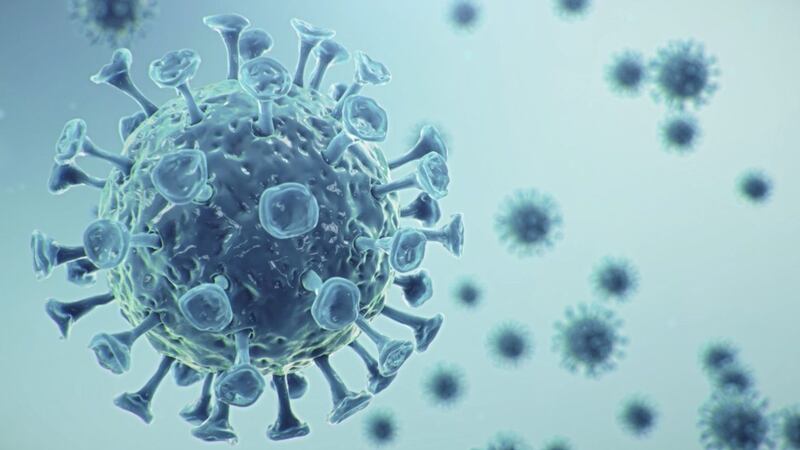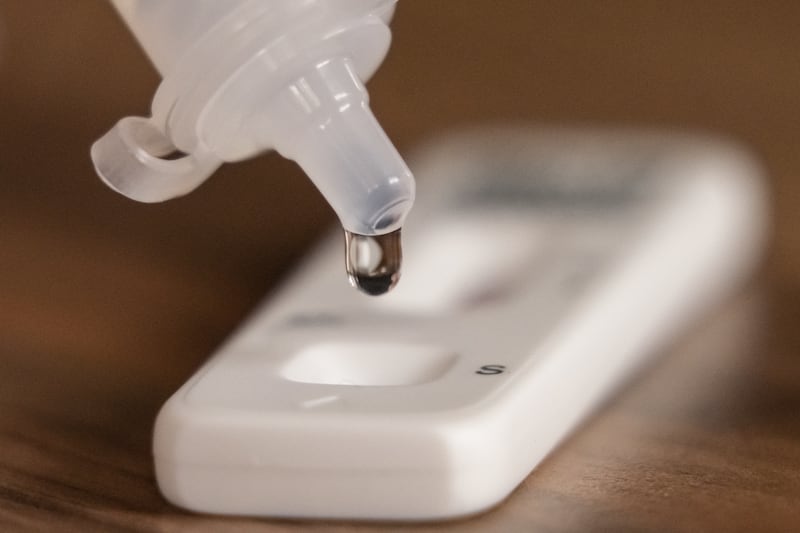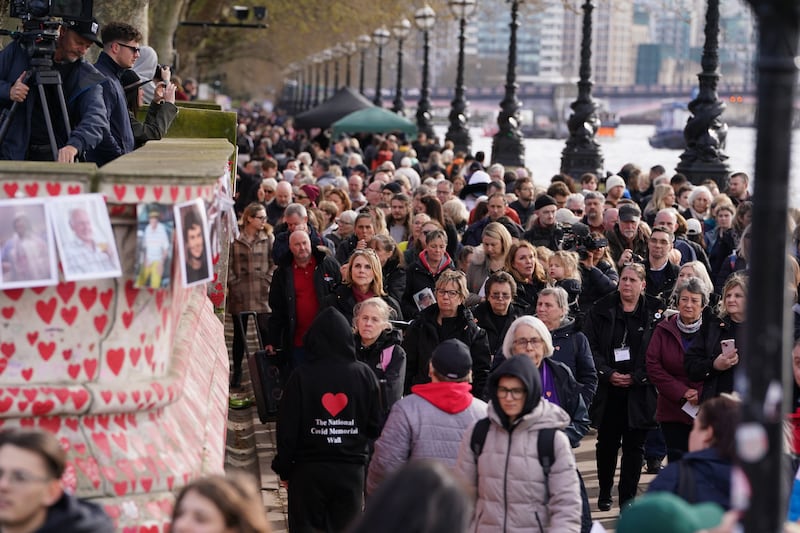NORTHERN Ireland has again recorded its highest weekly coronavirus death toll, as it emerged a new variant may be associated with higher mortality.
There were 156 fatalities in the week of January 9-15, the Northern Ireland Statistics and Research Agency (Nisra) said - with two days seeing "the joint highest number of Covid-19-related deaths occurring in any one day since the start of the pandemic"
There were 28 deaths recorded on both January 7 and 11.
The total number of Covid-related deaths up to January 15 was 2,186, according to Nisra figures.
The comparative number reported by the Department of Health to January 15 was 1,583, which only counts patients having previously tested positive for the virus.
The Nisra tally is based on information entered on death certificates.
The department's daily statistics yesterday showed another 12 people have died, with a further 865 positive cases of the virus confirmed.
There were 828 Covid inpatients in hospitals, of whom 72 were being treated in intensive care.
In the Republic, a further 52 deaths were recorded yesterday and 2,371 new cases.
There were 1,931 people with the virus in hospital, including 219 in ICU.
Figures showed a tenth of all deaths since the onset of the pandemic - 247 - were in the week ending January 15.
Taoiseach Micheál Martin said lockdown restrictions will not be eased at the end of the month, as it emerged almost one thousand people have been fined for non-essential travel in the last 11 days.
He also said his government was not in a position to seal the border to limit the spread of the virus, although ministers were considering a mandatory quarantine for travellers who arrive without proof of a negative test.
"We're not in a position to seal the entire border; there's never been a policy position to seal the entire island either," he said.
"So, therefore the two-island context is one that could be pursued."
Transmission rates are decreasing slowly but new, more contagious - and possibly more lethal - variants are causing Stormont ministers concern.
Prime Minister Boris Johnson said yesterday that health and science chiefs have found "in addition to spreading more quickly it also now appears that there is some evidence that the new variant, the variant that was first identified in London and the south east, may be associated with a higher degree of mortality".
The bleak warning came as UK chief scientific adviser Sir Patrick Vallance said mutations which had emerged in South Africa and Brazil may be less responsive to vaccines.
He confirmed the signs of an increased risk of death for those who have the new UK variant, although he said the evidence is "not yet strong".
Lockdown restrictions in Northern Ireland have already been extended to March 5, amid speculation it could be Easter until they are ultimately lifted.
First Minister Arlene Foster told BBC Radio 4 that, while the reproductive rate of the virus - the number of others infected by each positive case - is below one, ministers and medics need to see pressure on hospitals lessening.
Hospital admissions are now at their `peak'.
She promised the restrictions will not be "in place for any longer than is necessary or proportionate" due to the impact on "society, family life and our economy as well".
However, health minister Robin Swann warned it is "unrealistic" to expect all lockdown restrictions to be lifted on March 5.
"We do see where this virus is going, the trajectory it's taking, the large number of positive cases that we are managing, but also the large number of hospital admissions that we currently have," he told the BBC's Good Morning Ulster.
The PSNI, meanwhile, have dealt with several outbreaks at police stations during the pandemic.
The Downpatrick station in Co Down has reopened following a deep clean after a number of staff tested positive.
Assistant Chief Constable Alan Todd said: "I'd like to thank everyone for their support over recent days as we implemented our protocols to ensure the health and safety of our officers, staff and the wider community.
"We continue to provide support to our 10 officers who tested positive and just over 20 staff who are self-isolating as a precaution.
"We wish them all a swift recovery and look forward to them returning to their respective teams."








